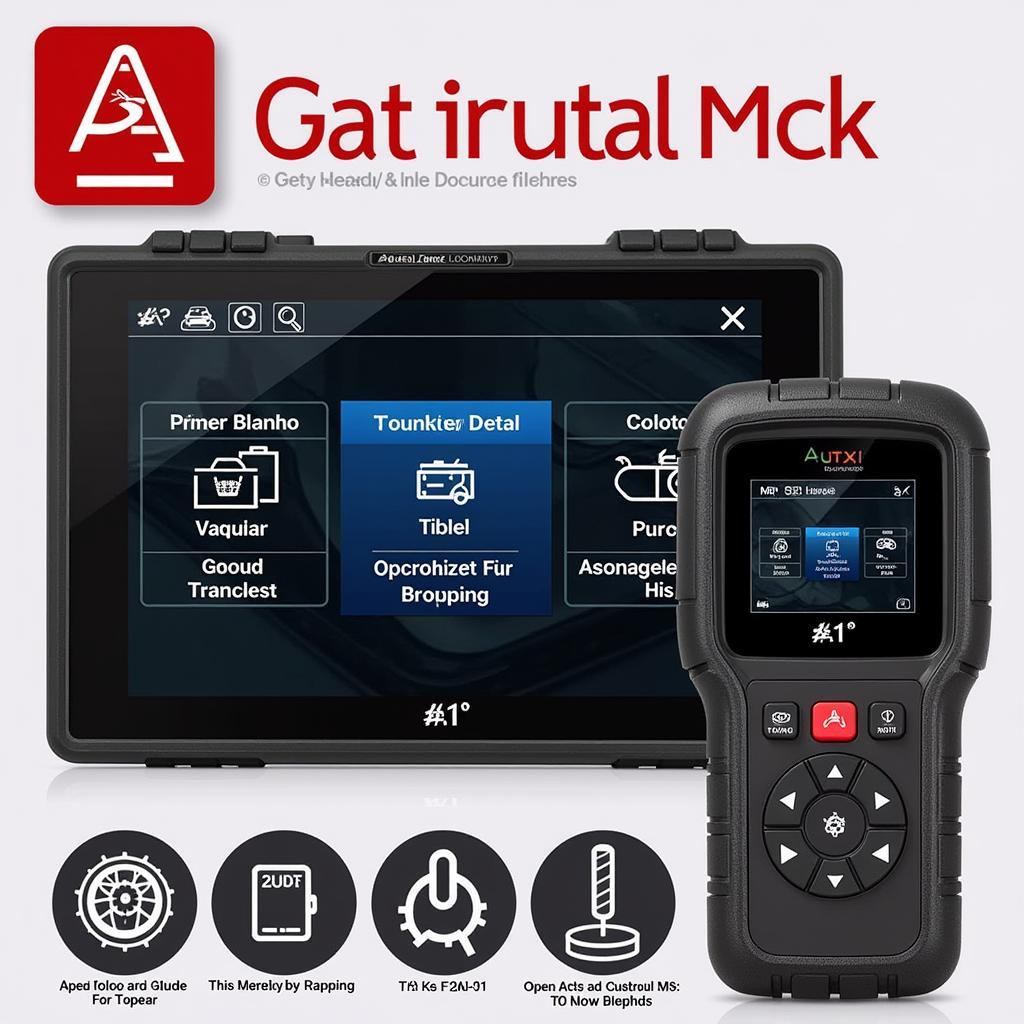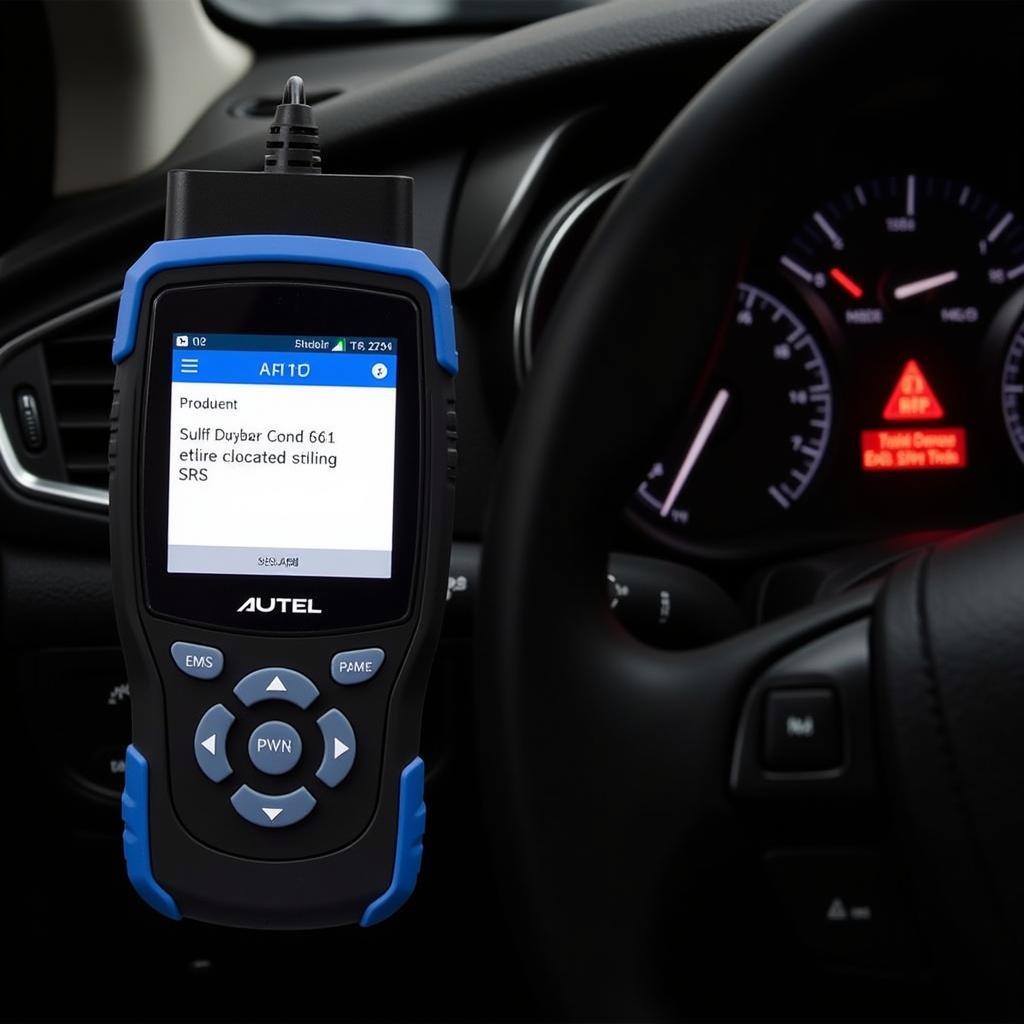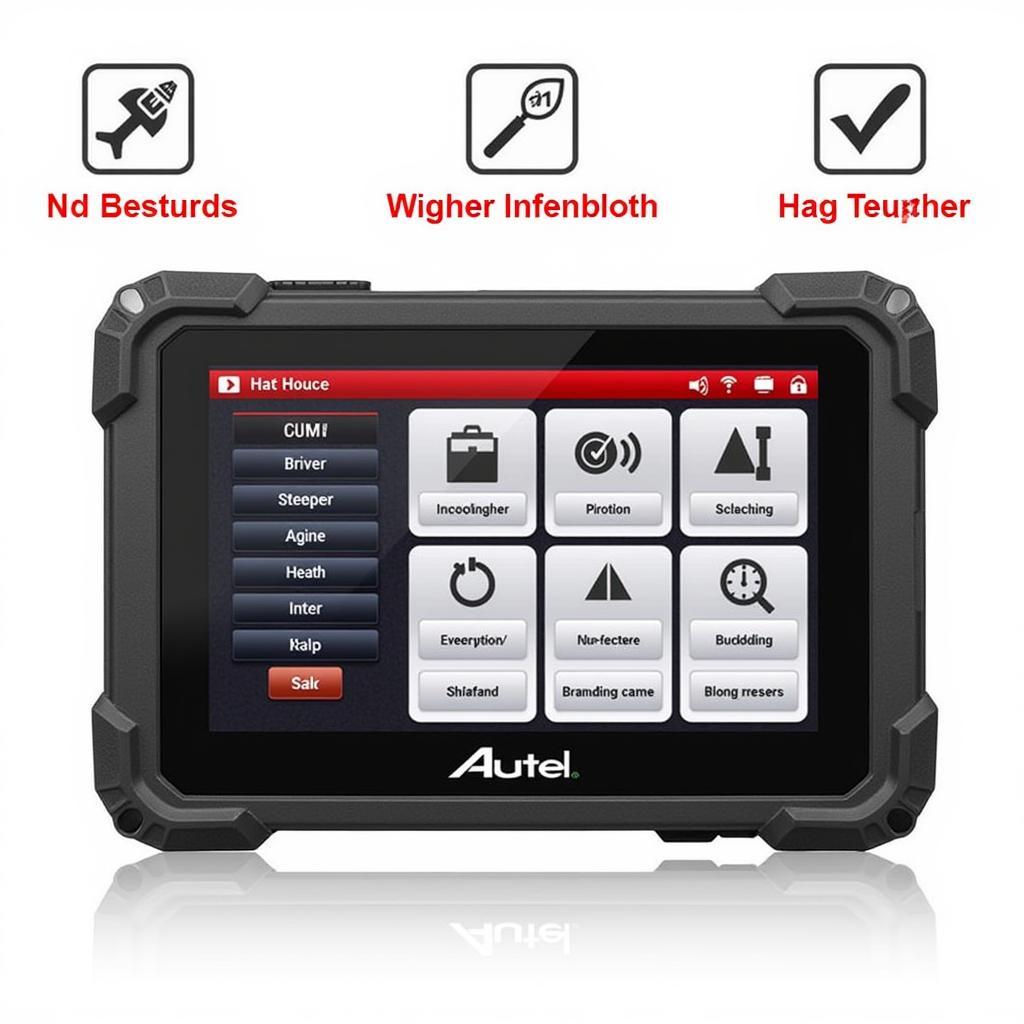Imagine this: You’re cruising down the Autobahn in your sleek German sedan, the wind whipping through your hair as you push 200 km/h. Suddenly, a warning light flashes on your dashboard – tire pressure low! Panic sets in. Don’t worry, we’ve all been there. That’s where understanding your car’s TPMS (Tire Pressure Monitoring System) and the tools like the Autel 1-Sensor come in.
Demystifying the Autel 1-Sensor: 315MHz vs. 433MHz
The Autel 1-Sensor is a popular choice for mechanics and car enthusiasts alike, especially when it comes to European cars. But what makes it so special, and what’s the deal with those frequencies – 315MHz and 433MHz? Let’s break it down:
Why TPMS Matters: Safety and Fuel Efficiency on the Road
Think of your TPMS as your car’s silent guardian, always watching over your tire pressure. Maintaining proper tire pressure is crucial for a smooth and safe ride. It affects:
- Safety: Underinflated tires can overheat, leading to blowouts and dangerous accidents.
- Fuel Efficiency: Properly inflated tires minimize rolling resistance, saving you precious fuel and reducing your carbon footprint.
- Tire Lifespan: Correct tire pressure ensures even wear and tear, extending the life of your tires.
The Autel 1-Sensor: A Universal Solution for European Vehicles
The Autel 1-Sensor is a programmable universal TPMS sensor designed to replace faulty sensors in a wide range of vehicles. Its key advantage? It can be programmed to work with both 315MHz and 433MHz frequencies, covering most European car makes and models.
What does this mean for you?
It means you don’t need to stock a multitude of different sensors. The Autel 1-Sensor simplifies your life, saving you time and money.
315MHz vs. 433MHz: What’s the Difference?
These frequencies determine how your TPMS sensor communicates with your car’s computer.
- 315MHz: Typically used in vehicles manufactured in North America and some Asian brands.
- 433MHz: Commonly found in European cars and some Asian models.
Always check your vehicle’s owner’s manual or consult with a trusted mechanic to determine the correct frequency for your car.
Frequently Asked Questions about Autel 1-Sensor
Q: Is the Autel 1-Sensor compatible with my car?
A: The Autel 1-Sensor boasts wide compatibility with various makes and models, including popular European brands like Audi, BMW, Mercedes-Benz, Volkswagen, and Volvo. However, it’s crucial to verify compatibility with your specific car model using the Autel website or a TPMS compatibility chart.
Q: Can I program the Autel 1-Sensor myself?
A: While it’s possible to program the sensor with a compatible TPMS tool, many car owners prefer to leave this task to professionals. Improper programming can lead to inaccurate readings and potential issues.
Q: How long does the battery in an Autel 1-Sensor last?
A: Autel 1-Sensors have a battery life of approximately 4-7 years, depending on usage and driving conditions.
Beyond the Technical: TPMS and a Touch of Feng Shui
While we’re diving deep into the technicalities, there’s an interesting parallel to be drawn with the ancient Chinese practice of Feng Shui.
Feng Shui emphasizes the flow of energy (Chi) in our surroundings. Similarly, a well-functioning TPMS ensures the smooth flow of your journey, promoting safety and balance. Just like balanced Chi brings harmony to a space, balanced tire pressure brings harmony to your driving experience.
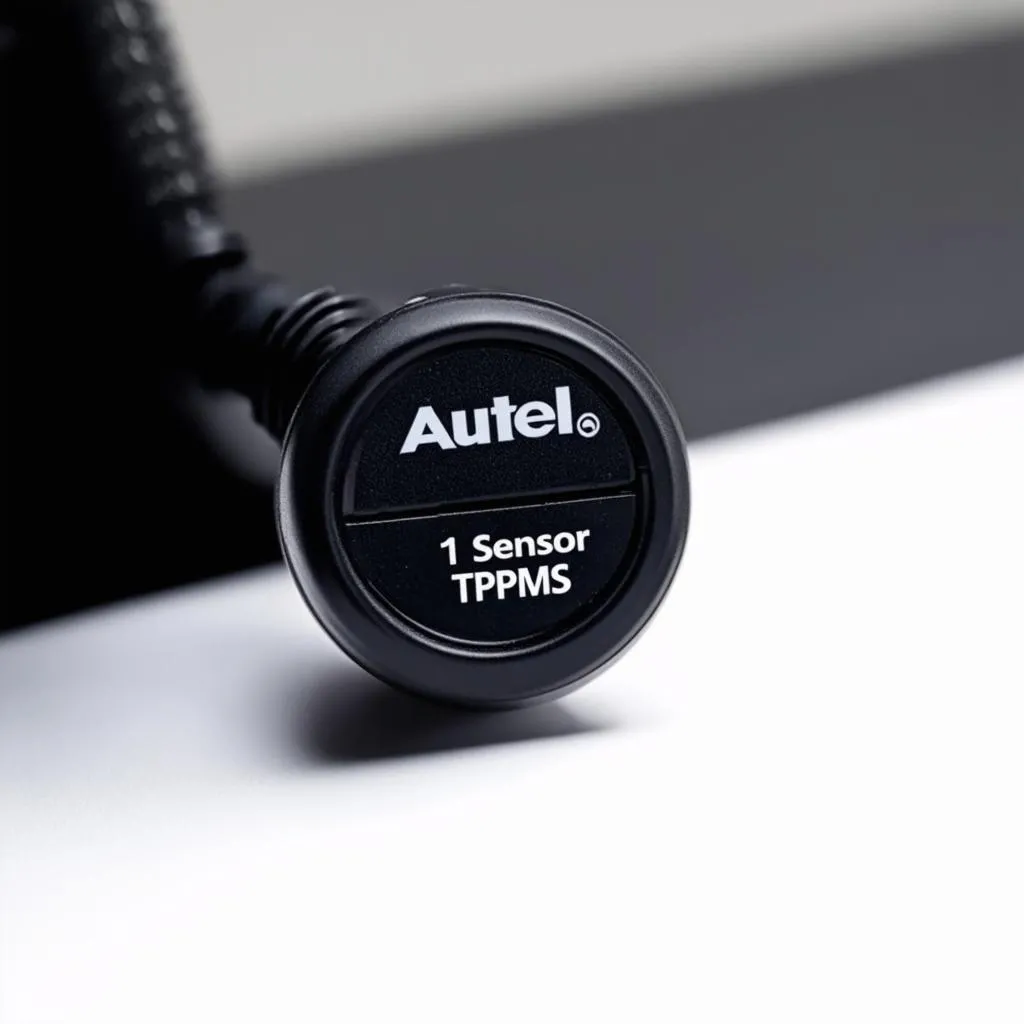 Autel 1-Sensor TPMS
Autel 1-Sensor TPMS
Choosing the Right TPMS Sensor: Factors to Consider
- Vehicle Compatibility: Always prioritize sensors compatible with your car’s make, model, and year.
- Frequency: Make sure the sensor matches your vehicle’s TPMS frequency (315MHz or 433MHz).
- Programming: Determine whether you need a pre-programmed sensor or if programming is required.
- Quality and Reliability: Choose reputable brands like Autel known for their quality and performance.
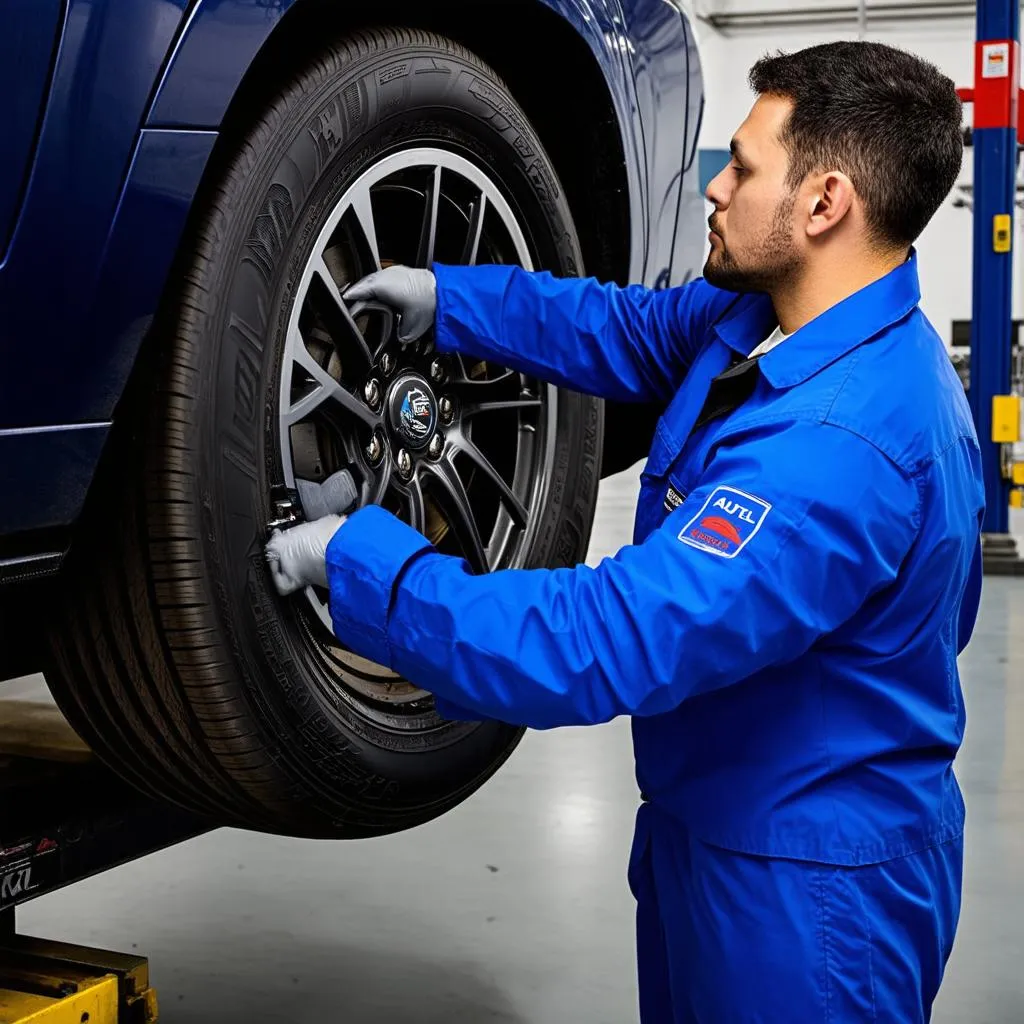 Mechanic Installing TPMS Sensor
Mechanic Installing TPMS Sensor
More Than Just Sensors: Explore diagxcar.com
Have more questions about TPMS, Autel products, or other automotive concerns? Don’t hesitate to reach out. At diagxcar.com, we’re dedicated to providing you with the information and resources you need to keep your car running smoothly.
Need help with installation or programming? Contact our team of automotive experts via WhatsApp at +84767531508. We’re here to assist you 24/7.
Drive with Confidence: The Importance of Proper TPMS Maintenance
Whether you’re navigating the bustling streets of London or embarking on a scenic road trip through the Italian countryside, a properly functioning TPMS provides invaluable peace of mind. Remember to:
- Check your tire pressure regularly.
- Replace faulty sensors promptly.
- Consult with a qualified mechanic for TPMS service.
By staying proactive with your TPMS maintenance, you ensure a safer and more enjoyable driving experience.
Looking for more car maintenance tips or product reviews? Check out these related articles on diagxcar.com:
- [Article Title about TPMS Troubleshooting]
- [Article Title about Autel Diagnostic Tools]
- [Article Title about European Car Maintenance]
Let us know in the comments below if you found this article helpful or have any TPMS-related questions!
